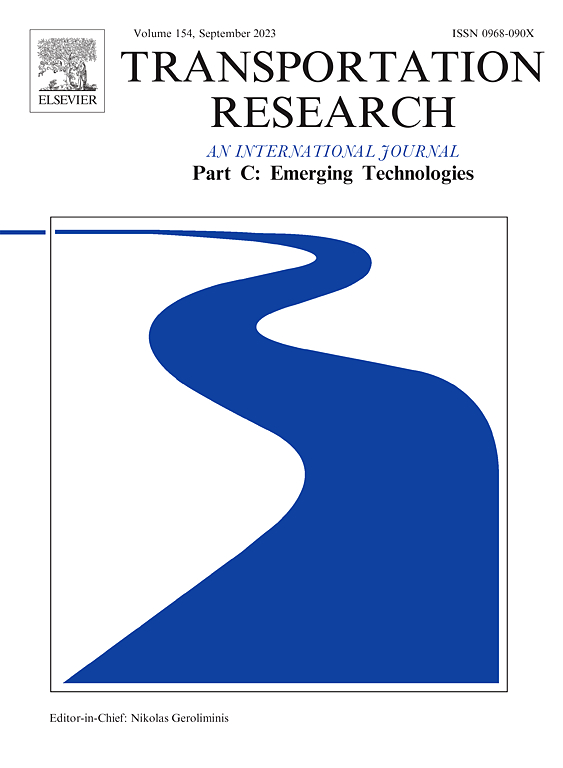Intelligent testing environment generation for autonomous vehicles with implicit distributions of traffic behaviors
IF 7.6
1区 工程技术
Q1 TRANSPORTATION SCIENCE & TECHNOLOGY
Transportation Research Part C-Emerging Technologies
Pub Date : 2025-03-23
DOI:10.1016/j.trc.2025.105106
引用次数: 0
Abstract
The advancement of autonomous vehicles hinges significantly on addressing safety concerns and obtaining reliable evaluation results. Testing the safety of autonomous vehicles is challenging due to the complexity of the high-dimensional traffic environment and the rarity of safety-critical events, often requiring billions of miles to achieve comprehensive validation, which is inefficient and costly. Current approaches, such as accelerated testing using importance sampling, aim to provide unbiased estimates of the performance of autonomous vehicles by generating a new distribution of background vehicles’ behaviors based on an initial nominal distribution. However, these methods require knowledge of the original distribution of traffic behaviors, which is often difficult to obtain in practice. In response to these challenges, we introduce a novel methodology termed implicit importance sampling (IIS). Unlike traditional methods, IIS is designed to generate intelligent driving environments based on implicit distributions of traffic behaviors where the true distributions are unknown or not explicitly defined. IIS method leverages accept-reject sampling to construct an unnormalized proposal distribution, which increases the likelihood of sampling adversarial cases. Through applying importance sampling technique with unnormalized proposal distribution, IIS enhances testing efficiency and obtains reliable and representative evaluation results as well. The bias caused by unnormalization is also proved to be controlled and bounded.
求助全文
约1分钟内获得全文
求助全文
来源期刊
CiteScore
15.80
自引率
12.00%
发文量
332
审稿时长
64 days
期刊介绍:
Transportation Research: Part C (TR_C) is dedicated to showcasing high-quality, scholarly research that delves into the development, applications, and implications of transportation systems and emerging technologies. Our focus lies not solely on individual technologies, but rather on their broader implications for the planning, design, operation, control, maintenance, and rehabilitation of transportation systems, services, and components. In essence, the intellectual core of the journal revolves around the transportation aspect rather than the technology itself. We actively encourage the integration of quantitative methods from diverse fields such as operations research, control systems, complex networks, computer science, and artificial intelligence. Join us in exploring the intersection of transportation systems and emerging technologies to drive innovation and progress in the field.

 求助内容:
求助内容: 应助结果提醒方式:
应助结果提醒方式:


